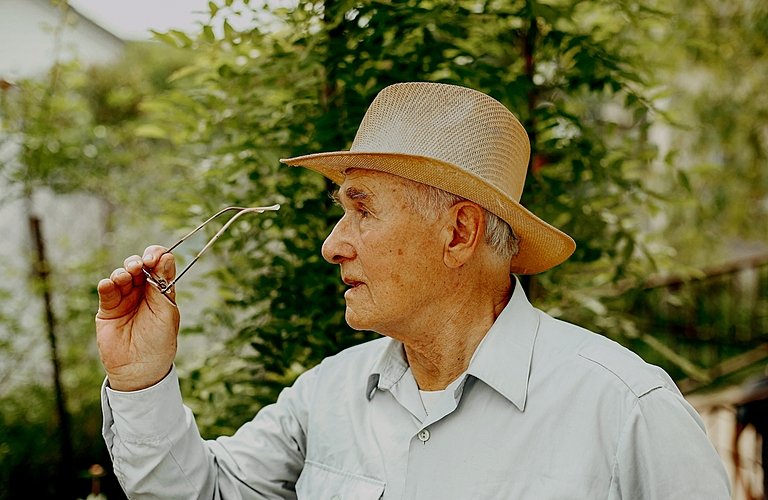192 Sloane Street, London SW1X 9QX

Care Homes for Dementia - When Is It the Right Time, And Who Decides?
Dementia is a progressive condition that affects memory, cognitive abilities, and social skills in unique ways for each individual. Understanding how your loved one's dementia journey unfolds can help you make thoughtful, informed decisions about their care with both compassion and practicality. At KYN, we understand the complexities and emotions involved in dementia care decisions. Our aim is to guide you through the crucial questions: when might residential care be the right choice, and who should make this important decision?
What Does the Journey of Dementia Look Like?
Living with dementia manifests differently in each person. The experience varies widely depending on the type of dementia, the individual's overall health, and their personal circumstances. While some people may experience primarily memory difficulties, others might face difficulties with language, reasoning, or spatial awareness. Early in the journey, symptoms often appear subtle – perhaps occasional forgetfulness or slight confusion. During this stage, many people continue living independently with minimal support. As dementia progresses, however, the need for assistance typically increases. Daily tasks like preparing meals, managing medication, personal hygiene, and maintaining safety become increasingly difficult. The middle and later stages often bring more significant changes, potentially including:
- Greater difficulty recognising family and friends
- Increased confusion about time and place
- Changes in behaviour or personality
- Changes in mobility and coordination
- Struggles with communication
This progression isn't limited to the individual alone – it extends to their entire support network, creating a shared experience that requires understanding, patience, and adaptability.
How Do Loved Ones Support This Decision?
Family members and close friends play an invaluable role in the dementia journey. Your intimate knowledge of your loved one's preferences, history, and wishes provides essential context for care decisions. The transition to a care home isn't about "giving up" but rather about ensuring the best possible quality of life in a safe, supportive environment. When considering residential care, loved ones should approach the decision with empathy, respect and comprehensive information. Having open, honest conversations early in the dementia journey can help immensely, allowing you to understand your loved one's wishes while they can still express them clearly. At KYN, we deeply value family involvement. Our dedicated Dementia Lead provides resources, guidance, and emotional support to help you navigate this transition with confidence and peace of mind.
When Might It Be Time to Consider Residential Dementia Care?
Determining the right moment to explore care homes requires careful consideration of several factors:
- Safety concerns: Has your loved one experienced falls, getting lost when out and about, or difficulties with household appliances? For example, they might forget to turn off the oven or have trouble navigating stairs safely.
- Personal care difficulties: Are they struggling with daily hygiene routines, dressing, or continence issues? Incontinence is common as dementia progresses and can be particularly difficult to manage at home.
- Nutrition and hydration: Have you noticed weight loss, missed meals, or signs of dehydration? Memory issues might cause them to forget to eat or drink regularly.
- Medication management: Is your loved one taking medications as prescribed? Missing doses or taking too much medication can lead to serious health complications.
- Caregiver well being: Are you experiencing burnout, health issues, or significant stress from providing care? The wellbeing of caregivers matters tremendously and must be considered.
- Changing behaviours: Has your loved one developed difficult behaviours such as agitation or significant confusion? These can sometimes be triggered by unmet needs that professional carers are trained to address.
- Social isolation: Is your loved one becoming increasingly withdrawn or lonely? Specialist care homes offer structured activities and companionship that can enhance quality of life.
When you can no longer provide the level of care needed at home, residential care offers professional support in a purposefully designed environment.
Who Makes the Final Decision?
In the UK, the decision-making process typically involves several people working together. Ideally, your loved one living with dementia should participate in the decision if they're able. Early discussions allow them to express their wishes and preferences before their condition advances. If they have appointed someone with the Lasting Power of Attorney, this person can legally make decisions on their behalf when they're no longer able. Family members, healthcare professionals, and social services often collaborate to determine the best approach, especially in more complex situations.
Experience KYN's Approach to Dementia Care
At KYN, we honour each person's unique journey through our specially designed environments and household system. Our expertly trained team provides compassionate care that preserves dignity and independence. We offer purposeful activities, from reminiscence sessions to sensory experiences, all within beautifully appointed spaces that feel like home. Our support extends to families through every step of this transition. For more information about our dementia care approach, please reach out to us to request a conversation, brochure, or visit.